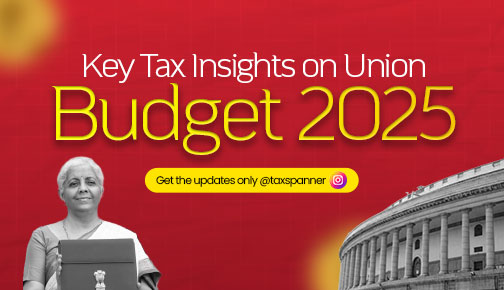Exemptions and tax deduction from House Rent Allowance
House Rent Allowance, or HRA
A house rent allowance, often known as an HRA, is a benefit employers offer to their employees to assist them in meeting their accommodation costs or the cost of their rented house.
You can claim a deduction for HRA under Section 10(13A) of the Income Tax Act; however, you should remember that HRA may be subject to full or partial taxation. The calculation of the HRA deduction depends on a variety of factors, including the following:
Your salary
HRA that you received
The amount of rent that was paid
Your city of residence
Eligibility for tax deduction from HRA
If an individual fulfills all of the following requirements, then they are qualified to claim a deduction for their house rent allowance under Section 10(13A) of the Income Tax Act:
A person who is either salaried or self-employed can claim to take advantage of the HRA deduction.
This individual must reside in a rented home at present since living in your own home limits the possibility of calculating HRA tax deductions.
You must provide evidence that the rent was paid, such as a legitimate receipt for the housing rent.
In case you do not have a rental agreement with a landlord, you are not eligible for an HRA deduction, even if your employer includes HRA in your income.
Tax advantages on HRA
One of the most significant benefits of the HRA exemption is the reduction it makes to your taxable income.
Even if you live with your parents, you can still claim the HRA deduction on your income tax return if you provide proof that you pay rent to a third party.
Even if you are making payments on an EMI for a home loan, you can claim the tax benefit of HRA as long as the house is not located in the city where you work or live.
If you own a home in the same city as both your place of employment and your residence, you must provide a convincing justification for why you cannot live there to be eligible for the HRA exemption.
HRA exemptions for a self-employed individual
House Rent Allowance (HRA) exemptions from taxes are also available to individuals who are self-employed and who pay their own rent. They are eligible to receive these advantages if they use Section 80 GG.
HRA exemptions for salaried individual
Salaried people can claim exemptions for House Rent Allowance (HRA) under the provisions of section 10 (13A), regulation number 2A of the Income Tax Act. However, it is essential to adhere to the company's policies regarding claiming HRA in consideration of the fact that this allowance constitutes a significant amount of an individual's annual salary.
Deduction Under Section 80GG
From the following items, whichever is the lowest will be exempted from tax.
5,000 rupees per month
25%percent of the total income after adjustments
The actual rent should be less than 10% of the total income after adjustments
*The following approach is used to determine the total income after adjustments:
Total income minus (i) long-term capital gain minus (ii) short-term capital gain under Section 111A minus (iii) income under Section 115A or 115D minus (iv) deductions 80C to 80U (except for deduction under Section 80GG) equals net income.
Calculation of tax exemption from HRA
The amount of deduction is determined by taking the lowest of the following amounts:
Amount of actual HRA that is received
50% of (basic pay + DA) for those who lived in a metro city (Delhi, Kolkata, Mumbai, or Chennai)
40% of (basic pay + DA) for people who live outside of metropolitan areas
Actual rent paid (-) 10% of the basic pay + DA
Documents needed to claim HRA tax exemption
To claim an HRA exemption, you must submit certain documents as proof.
For example - rental receipts that demonstrate the rent utilized for the computation of HRA deductions and rental agreements that mention an equivalent rent amount.
In addition, a copy of the landlord's PAN card or a signed declaration form is necessary if the annual rent is more than one lakh. For HRA tax calculation, you will require the same documentation as whether the rent was paid to family members or parents.
Points to remember while claiming HRA exemption
The individual must be a salaried employee.
They must be living in a rented home.
The amount of rent must be more than 10% of your basic salary.
Following these processes, you can request HRA exemption once you have satisfied these requirements:
Now, you can do the calculation for your HRA exemption. The least of the following amounts represents the maximum HRA exemption you can claim :
50% of basic pay
The actual amount of rent that is paid
Payment of rent multiplied by the four major metropolitan cities, i.e. (30% for Mumbai, Delhi, Kolkata, and Chennai)
Deduct the amount of HRA exemption from your taxable salary.
Now you can File your Income tax return. The following information must be present in the form when you are filing your income tax return:
Name and PAN of your employer
Your basic pay
The amount of HRA you want to claim exemption on
You can claim the HRA exemption using the e-filing portal if you submit your income tax return online.
Explore TaxSpanner's wide range of calculators for your tax planning and calculations!
View Tools & Calculators



